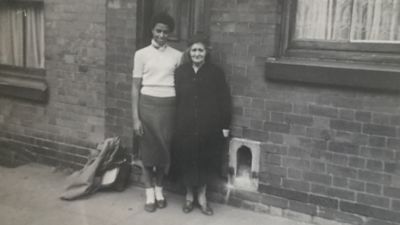Cambridge professor wins national prize for 'Brown Babies’ exhibition

An exhibition based on the work of a professor from Anglia Ruskin University (ARU) has won a Museums Association award.
Created by Professor Lucy Bland, the online “Brown Babies” exhibition tells the stories of children born to black American GIs and white British women during the Second World War.
The exhibition is hosted and organised by The Mixed Museum, which focuses on the history of racial mixing in the UK and received the best Digital Engagement prize at the Museums Association’s annual Museums Change Lives Awards.
Sponsored by Anglia Ruskin University, the exhibit builds on the research Professor Bland carried out for her book Britain’s ‘Brown Babies’, which earlier this year won the Social History Society’s Book of the Year prize.
Professor Bland interviewed more than 50 people who were born in Britain to Black GI fathers and white mothers between 1942 and 1945. Dubbed the “brown babies” by the African American media, it is estimated that almost half of these 2,000 children were placed in children’s homes in the UK.
Dr Chamion Caballero, director of The Mixed Museum, said: “This is such an amazing outcome. It was an honour for us even to be shortlisted alongside such amazing organisations but to win is just incredible. As a small and still very much evolving digital museum, to have the ‘Brown Babies’ exhibition acknowledged by the Museums Association through this award is such tremendous encouragement that the work we are doing is being seen and valued.
“As part of our work to share and preserve the histories of racial mixing in Britain, we believe in the importance of centring the voices of ordinary people, particularly those whose accounts have tended to be overlooked.
"And so we were honoured to be able to work with Lucy Bland and Anglia Ruskin University to help share the stories Lucy collected as part of her ‘Brown Babies’ research.
“It is thanks to the bravery and generosity of those who shared their experiences growing up mixed race during wartime that our exhibition exists, and this wonderful accolade belongs first and foremost to all of them.
"We hope it will go some way to help everyone who contributed to the research and the exhibition to feel that, after so many decades being marginalised, their history is increasingly seen as significant, valuable and worthy of attention.”